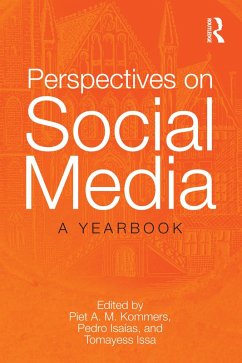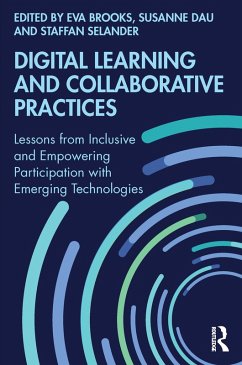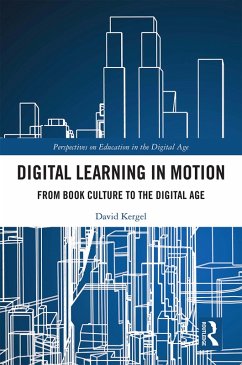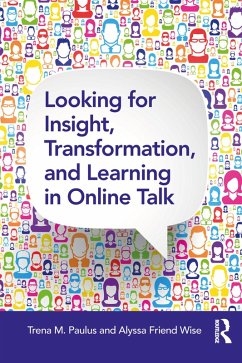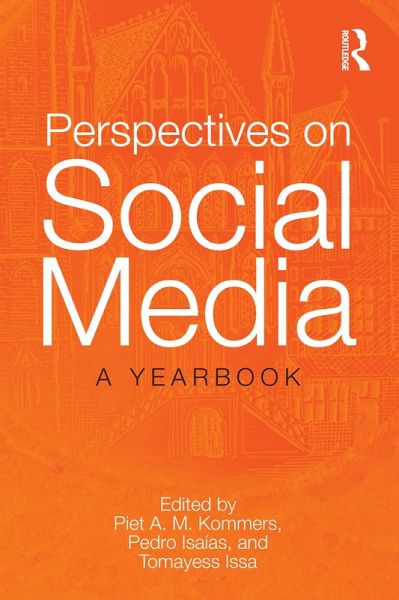
Perspectives on Social Media (eBook, ePUB)
A Yearbook
Redaktion: Kommers, Piet; Issa, Tomayess; Isaias, Pedro
Versandkostenfrei!
Sofort per Download lieferbar
49,95 €
inkl. MwSt.
Weitere Ausgaben:

PAYBACK Punkte
25 °P sammeln!
Perspectives on Social Media presents the most current research on the effectiveness of social media across sectors. Progress in finding better applications for social media relies on the difficult task of integrating media technologies into fields such as engineering, marketing, health, learning, art, tourism, and the service industry. This book is based on cutting-edge creative work among top international researchers and renowned designers and provides readers with a preview of the most visionary outcomes in the field of social media. Some of the major topics that the book discusses are: Ne...
Perspectives on Social Media presents the most current research on the effectiveness of social media across sectors. Progress in finding better applications for social media relies on the difficult task of integrating media technologies into fields such as engineering, marketing, health, learning, art, tourism, and the service industry. This book is based on cutting-edge creative work among top international researchers and renowned designers and provides readers with a preview of the most visionary outcomes in the field of social media. Some of the major topics that the book discusses are:
Perspectives on Social Media uniquely builds on recent disputes among the top scholars around the world, thus including the dynamics of knowledge-sharing and cross-fertilization that one would expect to happen on the web but that are rarely found in a book.
- New social media design
- Sense of community in web applications
- App design and development for mobile devices.
Perspectives on Social Media uniquely builds on recent disputes among the top scholars around the world, thus including the dynamics of knowledge-sharing and cross-fertilization that one would expect to happen on the web but that are rarely found in a book.
Dieser Download kann aus rechtlichen Gründen nur mit Rechnungsadresse in A, B, BG, CY, CZ, D, DK, EW, E, FIN, F, GR, HR, H, IRL, I, LT, L, LR, M, NL, PL, P, R, S, SLO, SK ausgeliefert werden.




